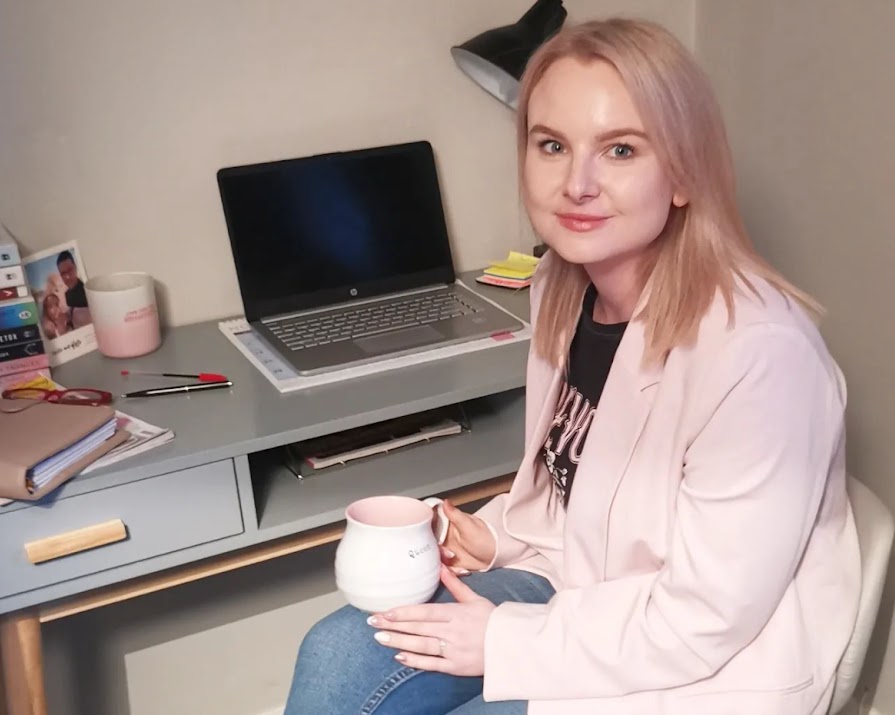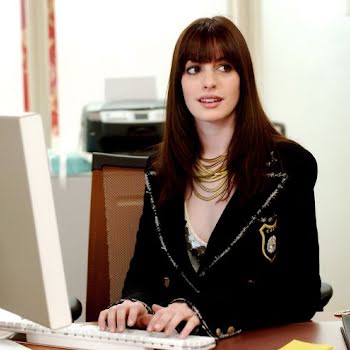
Sponsored
Three years as a freelancer, here’s what I’ve learned
Sponsored By

By Victoria Stokes
15th Jan 2024
15th Jan 2024
Sponsored By

Living the dream or tied to my laptop? Life as a freelancer can have its ups and downs. After three years of making it work in challenging economic circumstances, Victoria Stokes has some advice for anyone who’s doing it for themselves.
At the end of last year, I celebrated three years as a freelance copywriter and content writer. I’m specifically using the word ‘celebrated’ because it really did feel like a monumental achievement.
Freelancing, working for yourself, being your own boss… whatever you want to call it, being self-employed is often lauded as living the dream. But I can attest to the fact that, actually, it’s really bloody tough. And so, after a particularly tough year (thanks to the cost of living crisis and declining marketing budgets!) hitting this recent milestone feels especially significant.
Freelancing can be incredibly lonely at times, not just because it often involves sitting alone in a room with only your laptop for company, but because it often feels like there’s no one who can relate. No kindly colleague to turn to for advice. No supportive senior to offer a word of encouragement.
So, if you’re a freelancer currently in the trenches, I hope this feature will give you the support you need. The past three years have been one of the steepest learning curves I’ve ever been on – and I hope by sharing what I’ve learned the journey can be a little easier on you. What I’ve learned is:
Wellbeing is your number one priority
That might sound trite, but hear me out. When I first went freelance I poured all I had into my business. I thought about my brand morning, noon, and night, and I ran myself ragged trying to scale it as quickly as possible.
I didn’t take days off because I knew it meant a dip in earnings and I checked my emails obsessively in case I missed out on a career-changing commission or my next big client. I was constantly worried about where my next paying project was coming from.
You probably know what’s coming next. I burned myself out. Massively. And it hampered my productivity – and earning potential – a hell of a lot more than if I’d simply made a little more time for rest.
It’s rare to find a silver bullet to any problem, but taking days off when I need them and planning regular breaks throughout my working day has genuinely (please excuse the hyperbole) transformed my business and my relationship with it.
It’s taken some time but I’ve learned to press pause – without guilt – when I need to. I’m clearer-headed, my problem-solving and decision-making skills have improved, and good ideas have drifted into my head like a leaf on a breeze.
As a result, new projects and clients have been more plentiful than ever before.
No freelancer is an island
There are few things an introvert (like me) hates more than networking, but as the years have ticked by I’ve grown to love it. I’ve also learned how valuable it is in terms of making connections and securing new clients.
Some of the best days I’ve had as a freelancer have involved going to talks and presentations where other self-employed people are present. I’ve also enjoyed – despite some initial resistance – regular one-to-one Zoom calls with other business owners, some of whom have turned into clients.
Everyone needs a sounding board. We all need to feel like other people get what we’re going through, and nobody quite understands the struggles of freelancing (unpaid invoices! Rejections! Slow periods! Gah!) like other freelancers.
Networking might make you want to die inside, but trust me, when you attend an event or join an online community you’ll feel a little less alone.
Warm outreach may be the most reliable client attraction technique
There are few words in the English language that make a freelancer shudder more than ‘cold outreach’. I’ve learned that warm outreach is a much better – and much less cringe – tactic.
For the uninitiated, it basically means getting in touch with someone you already have some sort of relationship with.
When I started out, six figures a year was the bar. When I consistently – and quite spectacularly – fell short of that bar, I felt rubbish.”
I’ve made a habit of staying in contact with pretty much everyone I’ve encountered throughout my career. That life coach I met at a networking event? I’ll drop her a line to see if she needs support. The interviewee who supported me on a recent journalism submission? I’ll check in and ask if she’s interested in improving her visibility in other ways.
I’ve tried lots of client attraction techniques with varying degrees of success, but so far, few compare to this. Trawl through your list of connections and consider politely reaching out to them. It could pay dividends.
Don’t trust ‘six-figure’ freelancers
Whether you’ve been freelancing for a few years or a few weeks, you’ve likely come across a ‘so-called’ six-figure freelancer. Often found on LinkedIn, these freelancer-cum-‘gurus’ claim to consistently hit six figures in their businesses.
They’ll regularly brag about making 10k in a month and preach – without an ounce of empathy – about where other freelancers are ‘going wrong’. Interestingly, the freelancing course that they’re selling for a ‘bargain’ price of $2,000 is often touted as the solution.
I’m not saying six-figure freelance businesses are a myth – you absolutely could scale to this level after years of hard work and dedication – but it’s rare. And I’ve learned to treat these claims with a fair amount of scepticism.
When I started out, six figures a year was the bar. And when I consistently – and quite spectacularly – fell short of that bar time and again, I felt absolutely rubbish about myself. It didn’t matter that, actually, for a relative newbie I was making fairly decent money, these cunning con artists convinced me that I should be making more.
It led to a cycle of overwork that eventually had a knock-on effect on my mental health. So, do yourself a favour: take the six-figure claims with a pinch of salt.
It takes time and it gets better
If I could go back in time and revisit day one of my freelancing career, I’d tell myself that it’s going to be 100 times harder than I expect it to be.
That might not sound like particularly motivational advice but I believe it would have left me better equipped for the challenges that freelancing inevitably throws your way.
We live in a world that consistently glamourises being your own boss without mentioning just how tough it is, how much rejection you’ll face, or how many times you’ll consider throwing in the towel.
I now know that it takes a long time to become established – even if you’ve already established yourself in the industry by working various staff jobs like I had.
It takes a long time for the pieces to slot together, but eventually, all the small steps you’ve taken and the hard lessons you’ve learned along the way add up.
You get better at handling rejection, old clients and connections return, and you find the confidence to raise your rates.
Freelancing will always be unpredictable. During slow periods, you’ll think it’s the worst decision you ever made. When you’re busy, you’ll think it’s the best thing that ever happened to you.
Over time, you’ll learn to not freak out about the former and capitalise on the latter.























